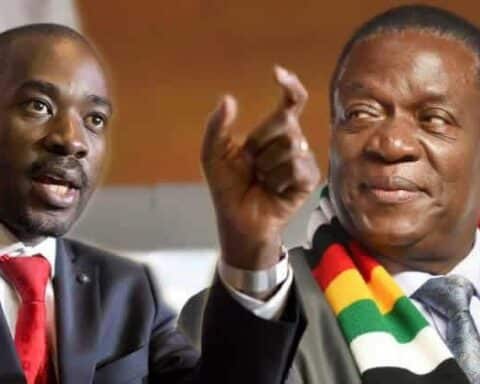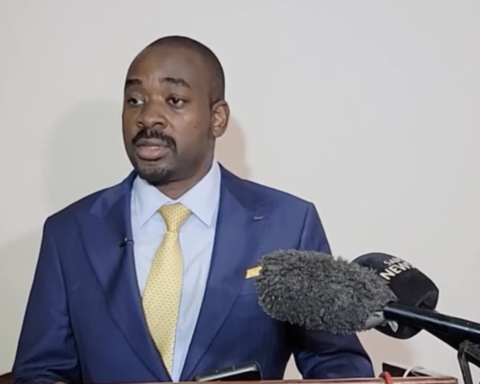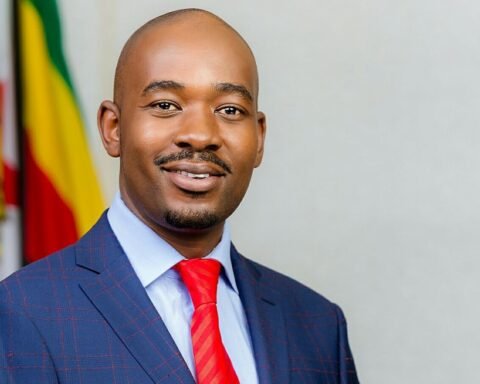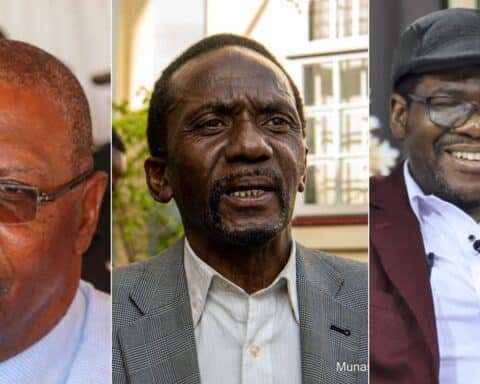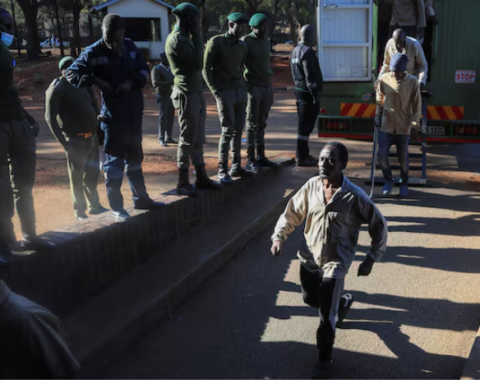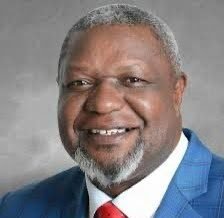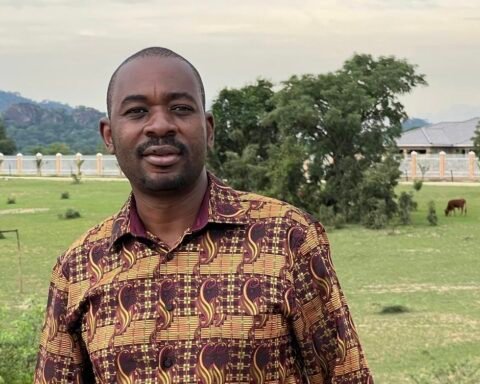In a poignant letter that resonates with the feelings of abandonment and betrayal, Job Sikhala, a former Member of Parliament and a notable figure in Zimbabwe’s political landscape, has openly expressed his disillusionment with the members of the Citizens Coalition for Change (CCC), including its leader Nelson Chamisa, from his confinement in Chikurubi Maximum Security Prison.
Sikhala, who has been in pretrial detention for over 600 days following his arrest on June 14, 2022, on charges of inciting violence and obstructing justice, has yet to see freedom’s light since. In his letter, which has stirred considerable discussion in both national and international circles, Sikhala lamented the lack of support and solidarity from those he previously regarded as allies within the CCC.
One of the most striking aspects of Sikhala’s letter is his acknowledgment of the support from ordinary citizens and Zimbabweans in the diaspora. He credits these groups for providing him and his family with necessities such as food and clothing during his prolonged detention. This support starkly contrasts with the apparent neglect he has experienced from his political comrades.
The efforts of Nelson Chamisa to visit Sikhala have been met with bureaucratic barriers. The Zimbabwe Prison and Correctional Services (ZPCS) mandated high-level clearance for such a visit, effectively blocking Chamisa’s attempts to meet Sikhala in solitary confinement. Chamisa’s interaction with Sikhala has been minimal and limited to a solitary encounter at the Harare Magistrates Court.
While Morgen Komichi, a former rival, did visit Sikhala, claims by Douglas Mwonzora, President of the MDC-T, of having an audience with Sikhala were quickly dismissed as false. This situation underscores the complex and often fractious nature of Zimbabwe’s political environment, where allegiances and trust are perpetually in flux.
Adding to the intrigue, Sikhala revealed an internal dispute within the CCC over monetary contributions. A fundraiser for a birthday present, amounting to a mere US$20, led to disagreements among CCC MPs. The present was eventually not delivered, further highlighting the internal tensions and distrust within the party.
Sikhala’s distrust extends beyond mere neglect. He accuses some within the CCC of colluding with his “tormentors” in an effort to undermine him. He explicitly mentions David Coltart and Hopewell Chin’ono, entrusting them with specific mandates and cautioning that his wife is prepared to take unspecified actions should they fail to meet these expectations.
In response to these developments, a structured committee for international engagement has been formed as part of the Free Job Sikhala Solidarity Movement. This committee, led by seasoned labor activist Obert Masaraure, includes regional and international ambassadors such as Washington Ali, Patricia Chinyoka, and Makomborero Haruzivishe (representing Britain, Ireland, and the European Union), Hlekiwe Lupafya (Commonwealth), and Tafadzwa Munjanja (America and the United Nations). This committee aims to garner international support and highlight Sikhala’s plight, reflecting the growing concern over his prolonged detention and the broader implications for political dissent in Zimbabwe.
Job Sikhala’s situation and his public outcry reveal the deep divisions and challenges within Zimbabwe’s opposition movements. It also highlights the role of international solidarity in supporting political detainees, raising critical questions about justice, political loyalty, and the struggle for democratic freedoms in Zimbabwe.

